Extract from interview with Helen Frizzell, 12 June 2009
Reproduced with permission of George Gordon
[Vu Van] Suu towards the end of the war actually joined the, the Vietnamese Diplomatic Corps and went and worked in their Embassy in Bangkok. After the war, of course he had to go into a Re-Education Programme, and he was in a camp for, I think it was seven years before he was released. After he was released, he went back to Saigon where his family had gone from Qui Nhon and were living, and they'd probably been to Bangkok with him and come back to Saigon.
And, after his re-education period of the five or seven years, he told me that he had some gold plate or – gold was considered a valuable asset by, I think right throughout Asia, and he was able to use that to buy himself a departure from Qui Nhon, ah from Saigon or Vietnam, in a fishing boat. And you might recall that immediately, or post war, there were a lot of South Vietnamese being found on fishing boats all over South East Asian seas as they were trying to get away from the country. Suu's boat got, I think, apprehended by an Indonesian Navy ship close to Indonesia and he was taken there with all the other refugees on, on the boat.
We got word of that, and I remember Doug Short and I communicating about it, and some contact was made with the Ministry of Foreign Affairs. And they set up inquiries, probably through the High Commission in Singapore, or we had one in Kuala Lumpur at the time. And contact was made with Suu. And, I think Ministry of Foreign Affairs people went up there because there was a lot of people asking, of the Vietnamese asking to come to New Zealand. And they went up there and, and Su was brought back to New Zealand.
And, I think, and I'd just really like for the record to point out how well he achieved after he got here. He was persistent with the Nursing Council in getting his registration as a nurse and he finally achieved that – and then worked as a surgical nurse at Greenlane Hospital.
He was appointed a Justice of the Peace and, he, with – he separated from his wife – and with his new partner, who was also Vietnamese, Marie Burns, who had anglicised her name. She had first come to New Zealand in the 1950s as a Colombo Plan student and got an MA at Auckland University. And, she and Suu established a cultural centre for Vietnamese in Auckland, and it was established for the purpose of introducing New Zealand born Vietnamese children, and particularly those who had come from Vietnam as infants, about their culture and their language. And, both Marie Burns and Suu were recognised for their efforts because they, both were awarded honours in the Honours List.
Vietnam War Oral History Project, Manatu Taonga Ministry for Culture & Heritage






